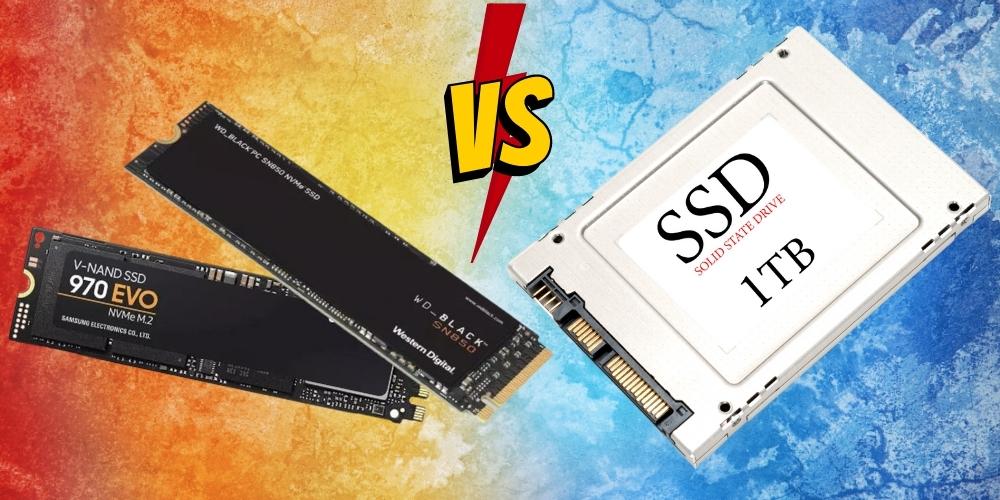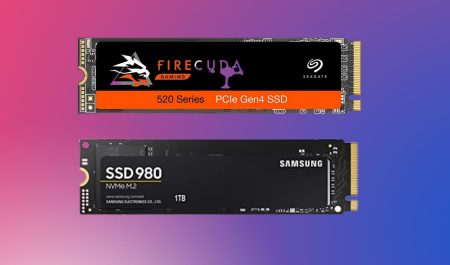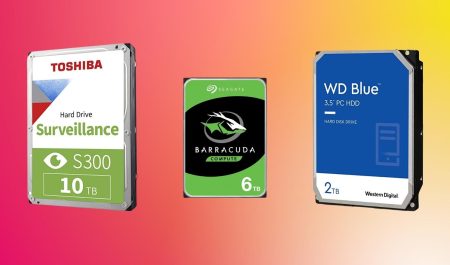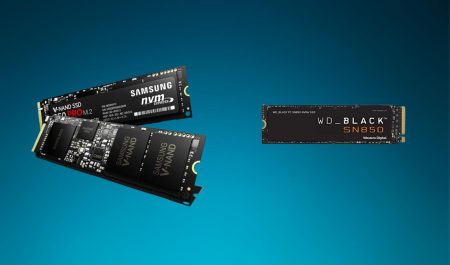1. Performance Is Important For Gaming
NVMe is a new type of storage that uses ultra-wide channels to communicate with your computer. This allows for much faster data transfers than traditional SATA II or III memories. In fact, some tests have shown that NVMe can achieve speeds as high as 30000 MB/s! That’s more than 10 times the speed of a regular SATA III memory!
But does this extra speed actually matter? The short answer is yes, it can make a big difference. For example, imagine you have a video file that’s 5 GB in size. If you put it on an NVMe SSD, you could potentially finish loading it into your computer in just 4 seconds! That would be pretty amazing!
2. Storage Capacity Is The Buying Factor For Big Games
NVMe SSD storage is quickly becoming the standard for high-performance computing (HPC) environments. This is due to its increased performance and lower latency when compared to traditional hard drives.
- When comparing NVMe SSDs with HDDs, they come in many sizes, from small 500GB models to large 4TB models. The biggest advantage of using an NVMe SSD over a hard drive for HPC applications is the speed difference.
- A 500GB NVMe SSD can outperform a 1TB hard drive by up to three times in some cases! Another advantage of using NVMe SSDs for HPC applications is the low power consumption. This means that you can run your HPC system on less power, which can save you money on your electricity bill.
- NVMe SSD storage has quickly become the go-to choice for high-performance applications. With speeds reaching 2,000MB/s, NVMe SSDs offer an unprecedented level of performance and flexibility. The key to getting the most out of NVMe SSD storage is to choose the right size.
- There are currently three sizes available: M2 (2242GB), S2 (2048GB), and M1 (10240GB). The S2 and M1 sizes are larger than the M2, but they both offer greater speeds and more capacity.
- The downside to the S2 and M1 sizes is that they are more expensive than the M2. If you need more capacity or want a smaller size, consider choosing the M0 size.
3. Data Protection And SSD Encryption
The NVMe SSD market has been growing rapidly in recent years, with manufacturers introducing full-time AES-level encryption with 256-bit encryption. This new security feature is being offered by several leading NVMe SSD manufacturers, including Samsung, Intel, and Toshiba. Full-time AES-level encryption offers improved data security and privacy over traditional MLC flash storage.
In addition to encrypting the entire disk contents, the encryption algorithm also randomizes the disk content every time it is accessed, making it more difficult for unauthorized individuals to access sensitive data. According to a study published by Dell in January of this year, nearly two-thirds of enterprise customers are now using NVMe SSDs for their primary storage solution.
4. Warranty That Care For You (Added Value)
NVMe SSDs are quickly becoming the go-to drive for high-performance applications. However, like all electronic devices, they can fail over time. To ensure that your NVMe SSD remains operational and reliable for the long term, consider purchasing a 5-year warranty. When shopping for an NVMe SSD, make sure to look for drives with at least a 2-year warranty.
This will give you peace of mind that your investment in this technology is protected against failure. In addition to protecting your data, a 5-year warranty also gives you the opportunity to upgrade or replace your drive should it become outdated or no longer meet your needs. If you are in the market for an NVMe SSD and are unsure if a 5-year warranty is right for you, be sure to speak with an expert who can help guide you through the many options available.
Does The Type Of SSD Matter For Gaming And What Size Do I Need?

When it comes to SSDs there are two main types: SATA and NVMe. SATA SSDs use the traditional SATA connector we all know and NVMe SSDs use a PCIe 3.0 x4 connection. NVMe drives are much faster than SATA drives, but they also come at a higher price. So, if you’re looking for the best performance possible and don’t mind spending a bit extra, go for an NVMe drive.
For suggestions, the main factors that affect gaming performance are the read and write speeds of the SSD, so gamers should look for an SSD with high read and write speeds. In our test, both PCIe SSDs and NVMe SSDs have proven five times more speed bandwidth than SATA SSDs, so going with a specific type of SSD will give you more speed and performance.
If you’re on a tight budget, however, a SATA drive will still offer a good gaming experience over 7200RPM and 5200RPM hard drives. Other than cost, when purchasing an SSD for gaming, size is one of the most important considerations. It can be a deal-breaker or a deal maker for some users because heavy games consume more storage and choosing an SSD with a large size is recommended in such situations. Additionally, future games take up quite a bit of space, so you’ll want something that can hold at least 50-60 games.




